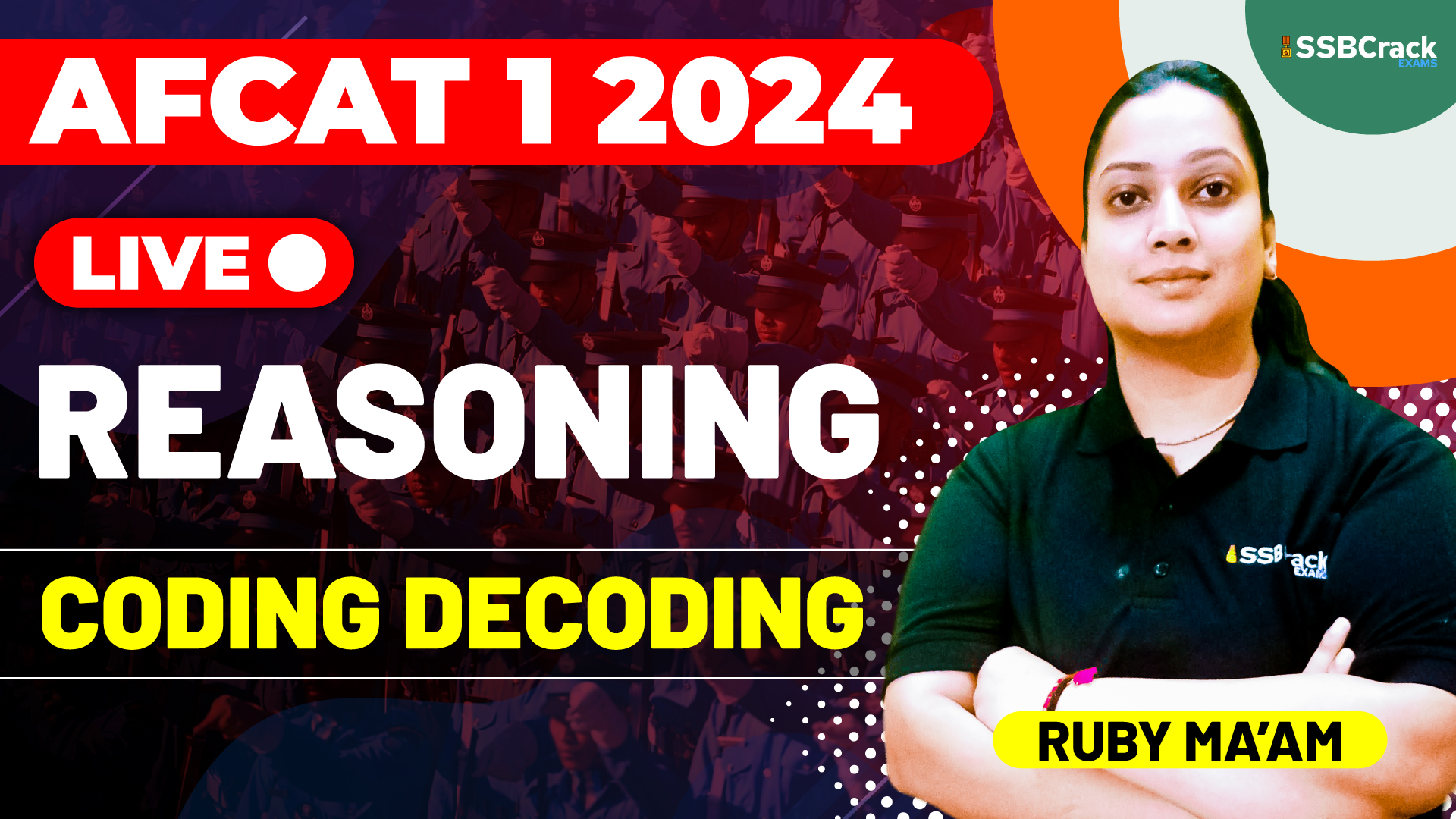The Air Force Common Admission Test (AFCAT) is a crucial step for aspirants seeking to join the Indian Air Force as commissioned officers. Among the various sections in the AFCAT examination, the reasoning section plays a pivotal role in assessing the logical and analytical abilities of candidates. One specific topic within reasoning that holds immense importance is “Coding and Decoding.” In this article, we will delve into the significance of coding and decoding in AFCAT reasoning and understand why mastering this topic is vital for aspirants.
Coding Decoding
Understanding Coding and Decoding:
Coding and decoding involve the transformation of information through a set of rules or patterns. In the AFCAT reasoning section, coding and decoding questions test a candidate’s ability to decipher codes, understand patterns, and apply logical reasoning to derive meaningful conclusions. These questions assess not only one’s numerical ability but also cognitive skills and attention to detail.
Why Coding and Decoding Matters:
- Analytical Thinking: Coding and decoding questions in AFCAT require candidates to think analytically. The ability to break down complex patterns and identify underlying rules is crucial. This skill is directly relevant to the decision-making process that officers are required to undertake in real-world scenarios.
- Problem-Solving Skills: Success in the AFCAT examination and subsequent officer training demands strong problem-solving skills. Coding and decoding questions often present candidates with challenging patterns that require systematic thinking and creative problem-solving approaches.
- Attention to Detail: Officers in the Indian Air Force must be meticulous in their work, as attention to detail is critical for mission success. Coding and decoding questions assess a candidate’s ability to pick up on subtle patterns and details, mirroring the precision required in military operations.
- Time Management: The AFCAT exam is time-bound, and efficient time management is key to completing all sections within the allocated time. Coding and decoding questions, being inherently tricky, necessitate swift but accurate decision-making. Practicing these questions enhances an aspirant’s ability to manage time effectively during the examination.
- Enhancing Logical Reasoning: Coding and decoding questions test logical reasoning skills. Officers often find themselves in situations where quick and logical decision-making is imperative. Mastery of coding and decoding aids in developing a sharp and logical mindset.
How to Master Coding and Decoding:
- Practice Regularly: Consistent practice is the key to mastering coding and decoding. Solve a variety of coding and decoding questions regularly to expose yourself to different patterns and rules.
- Understand the Patterns: Instead of memorizing solutions, focus on understanding the underlying patterns. This will enable you to apply logical reasoning to new and unfamiliar coding and decoding scenarios.
- Time Yourself: Develop the ability to solve coding and decoding questions within a stipulated time frame. This not only helps in time management during the exam but also enhances your decision-making speed.
- Take Mock Tests: Incorporate coding and decoding questions into your mock tests to simulate exam-like conditions. Analyze your performance and identify areas for improvement.
- Seek Guidance: If you encounter difficulties, seek guidance from mentors, teachers, or online resources. Understanding the various approaches to solving coding and decoding problems can significantly improve your proficiency in this area.
Conclusion:
Coding and decoding is a vital aspect of the AFCAT reasoning section, demanding a combination of analytical thinking, problem-solving skills, attention to detail, and logical reasoning. Aspirants who master this topic not only increase their chances of success in the AFCAT examination but also develop essential skills that are valuable in their future roles as officers in the Indian Air Force. Dedicate time and effort to hone your coding and decoding skills, and unlock the door to a successful career in the defense forces.







